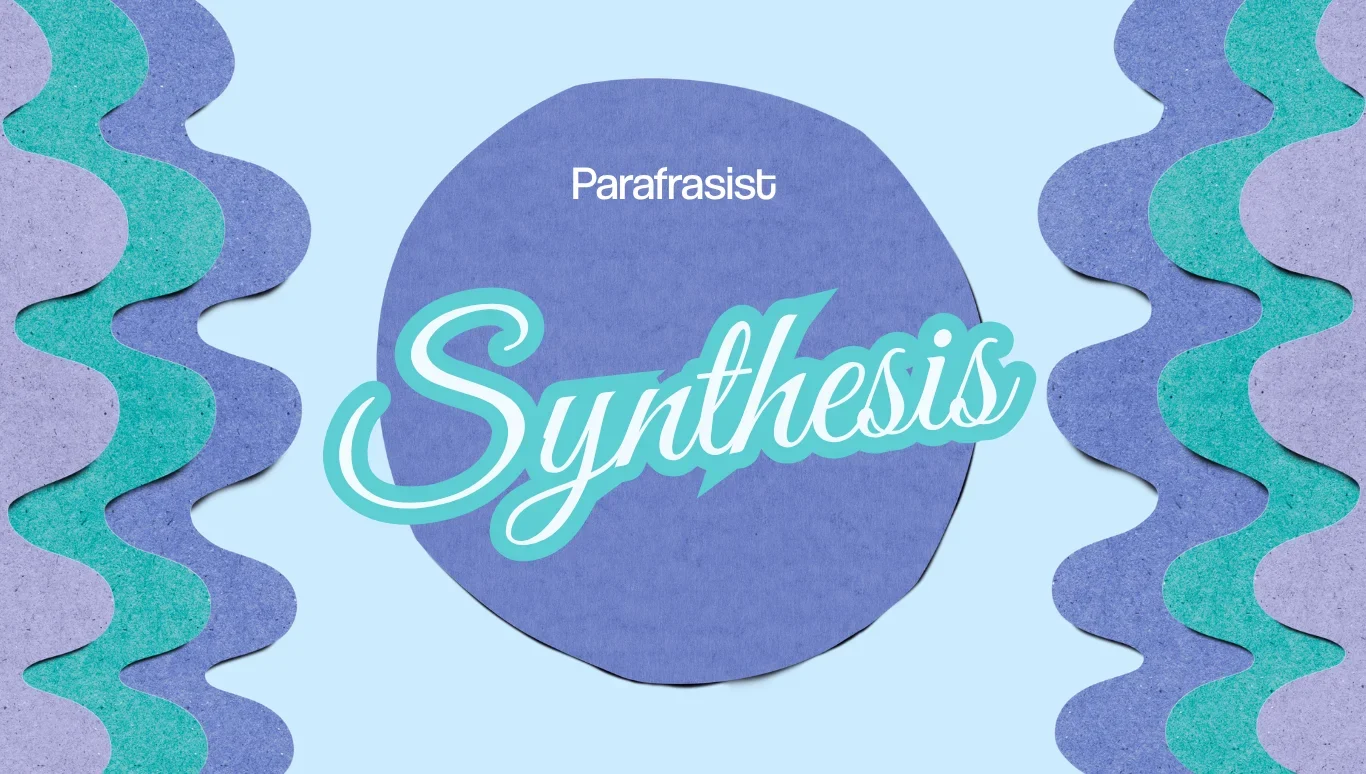Synthesis: What is a Synthesis and Some Examples
Adriana
August 29, 2022

Throughout your student life, you've had to create summaries and text syntheses, but do you know what a synthesis is?
Synthesis, What Is It?
Let's start by defining what a text synthesis is. The word synthesis originates from the Latin synthesis, meaning "composition or arrangement." There are various interpretations and uses of the term synthesis, but in the academic and educational context, the concept of text synthesis refers to a written work that briefly gathers the main concepts and ideas, essentially placing the most important words and concepts from a book, article, reading, etc., into a new text. One of the synonyms for synthesis is summary.
Synthesis Example
Knowing what a synthesis is with an example can help you better understand its functionality and utility. Below, we provide a synthesis example that you can create on Parafrasist.com.
Example of Synthesis:
Original Text
In 1769, it was Watt who patented the steam engine as such. This is why some consider Watt the real inventor of the steam engine. With his machine, Watt introduced substantial improvements to previous machines that used steam power very poorly. Among the technological improvements his design brought, James Watt included a significant modification. The inventor of the steam engine realized that a lot of heat was lost when moving the pistons in Newcomen's machine. Thus, this Scottish engineer devised a system that allowed that heat to be used to evaporate more water. By doing so, Watt invented a much more economical and efficient steam engine. It was precisely this improved efficiency that allowed the steam engine to be used in transportation. Although its application has been extensive across the entire industrial sector. In fact, the inventor of the steam engine was largely responsible for driving the Industrial Revolution. During this period, humanity experienced a period of profound economic, social, and technological transformations. Since the Neolithic, there had been no evolution of such magnitude. During these years, society shifted from an economy primarily based on agriculture and trade to one that was essentially urban, industrialized, and machine-based. The introduction of tools like the steam engine in various industries allowed for the decisive step in the success of this revolution, as it greatly increased production capacity.
Synthesis
In 1769, Watt patented the steam engine as such. Some consider Watt to be the true inventor of the steam engine. With his machine, Watt introduced significant improvements over previous machines that made very poor use of steam energy. The inventor of the steam engine realized that when moving the pistons in Newcomen's machine, a lot of heat was lost. In the process, Watt invented a much more economical and efficient steam engine. It was precisely this improved efficiency that allowed the steam engine to enter the world of transportation. The introduction of tools like the steam engine in various industries allowed us to take the decisive step towards the success of this revolution, as it greatly increased production capacity.
Create syntheses with AI by clicking here.

Objectives of the Synthesis
Summarize: One of the most common objectives of synthesis is to create a summary of a long and complex text.
Analyze: Synthesis can help identify the main ideas of a text to deepen its interpretation and understanding.
Compare Information: We use synthesis to contrast different information sources to increase coherence in the text.
Types of Synthesis
Protein Synthesis: Protein synthesis or protein biosynthesis is a phenomenon that occurs within cells and consists of the addition of proteins through amino acids.
Chemical Synthesis: Chemical synthesis creates a new substance by combining elements or molecules.
Literary Synthesis: Synthesis in literature involves generating a new text from an existing one by extracting the main ideas.
Although protein synthesis and chemical synthesis are far removed from the text synthesis we are discussing, they are considered types of synthesis.
In conclusion, the meaning of a synthesis is a written work that gathers the main ideas of a source text to create a new one; it has several characteristics as well as types. We also provided synthesis examples to help you visualize the differences between the source text and the synthesis or its synonym, the summary. Remember, you can create syntheses online and with AI on Parafrasist.
